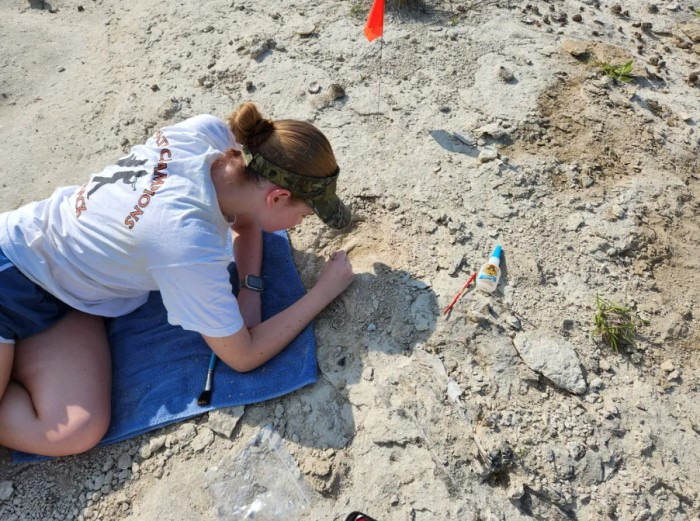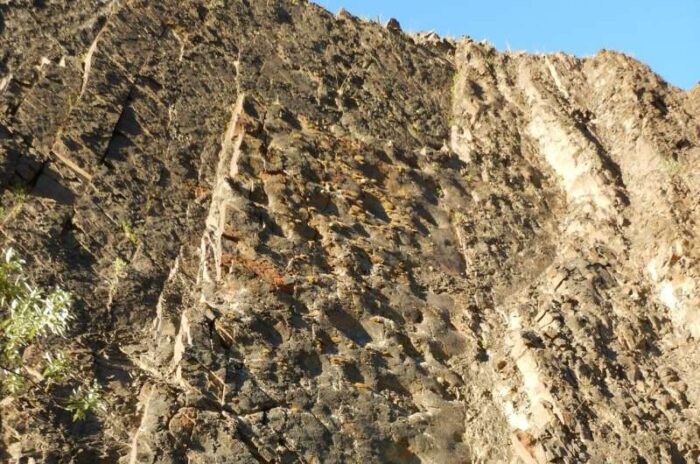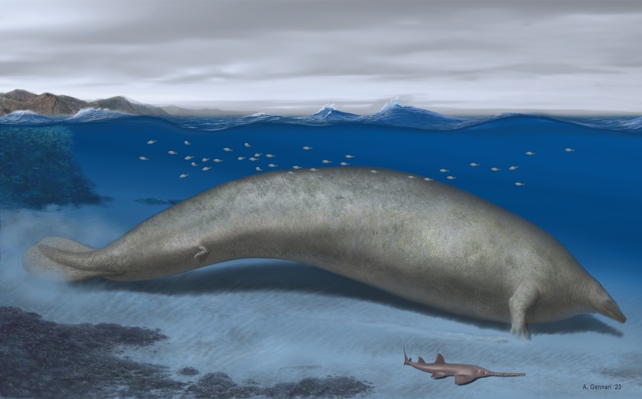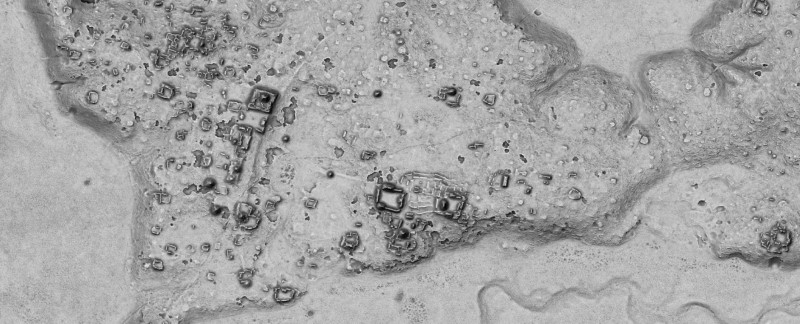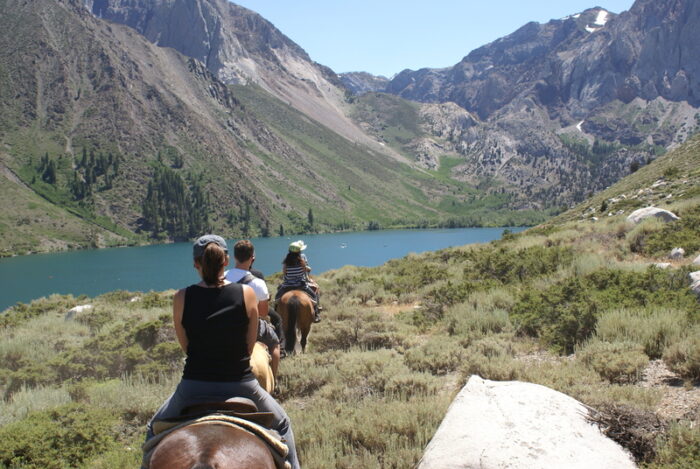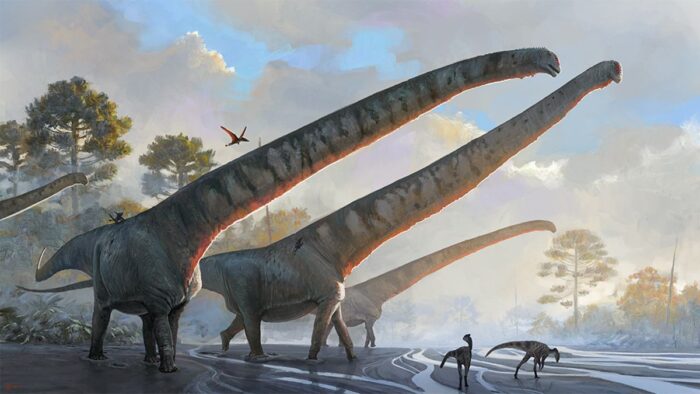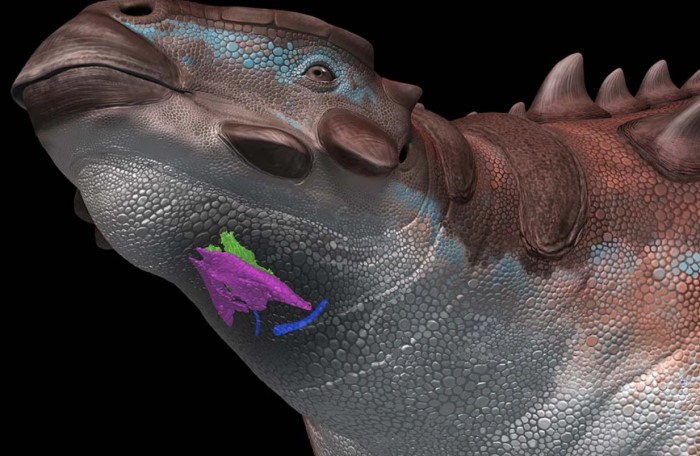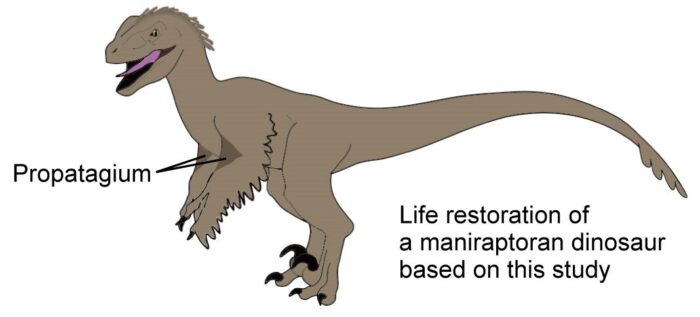While trekking up to a hot spring in Tibet in search of fossils, an international team of researchers made an incredible discovery. Ancient fossilized hand and foot prints placed on a cave wall.
Using new archeological science, the team was able to date the prints to the Pleistocene Era—a.k.a. the time of the last Ice Age and the very beginning of humanity. Check them out at the top of this post!
Cool Find
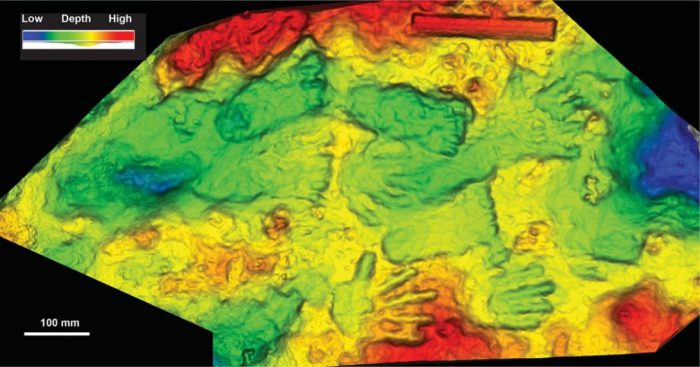
This 3D scan shows clearly both the foot and hand prints of young early humans. (D.D. Zhang et al. / Science Bulletin)
Judging by the size of the handprints, the researchers determined that the prints were left by two children. One handprint would fit the size of a modern day seven-year-old, and the other one is about the size of a twelve-year-old. While not too much is known about the ancient people who lived in what is now Tibet, scientists can assume that the area was home to some of early human ancestors.
The handprints were found inside a rock called travertine, a mineral-rich stone found near hot springs. About 200,000 years ago, the rock wouldn’t have been solid like it is today. It actually would have been a sticky, sludgy mud that the prehistoric kids stuck their hands into. These impressions have now been preserved into the rock forever, similar to if you stuck your own hand into wet cement!
Ancient Art
When we find archeological evidence of our ancient ancestors, we’re left with many questions. What does this mean? How do we interpret these findings?
Even if the prehistoric kids weren’t exactly carving the Mona Lisa into the mud, archeologists still consider the handprints to be an early form of artistic expression. By intentionally imprinting their hands and feet, it’s a way of saying “I was here”. Even now, humans carry on this tradition by scribbling in notebooks, or spraying graffiti on walls.
Similar prehistoric art can be found across the globe, including cave paintings in Indonesia, France, and Spain. It’s amazing to think how similar we are to ancient relatives from hundreds of thousands of years ago. Even as kids!
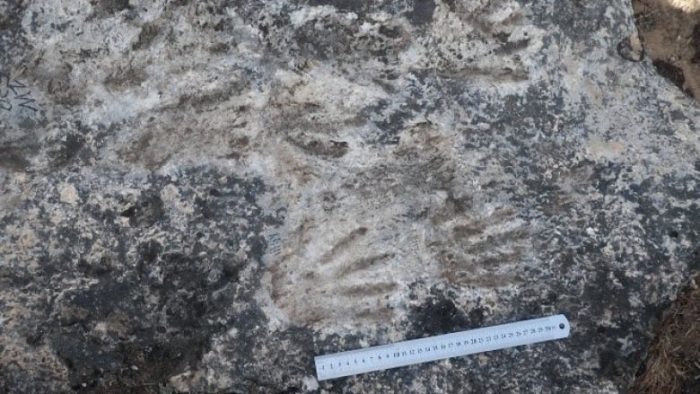 High five! These are some of the oldest handprints ever found. (D.D. Zhang et al. / Science Bulletin)
High five! These are some of the oldest handprints ever found. (D.D. Zhang et al. / Science Bulletin)
